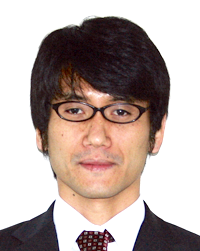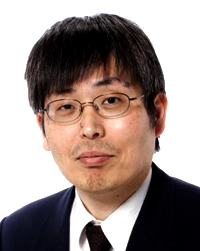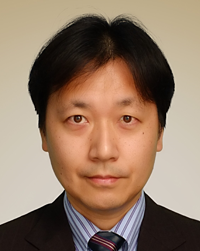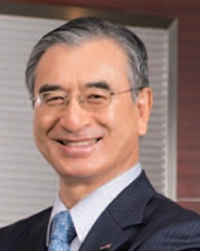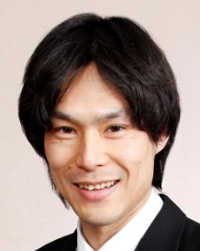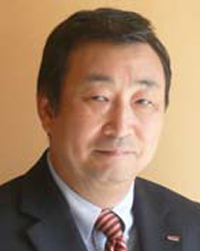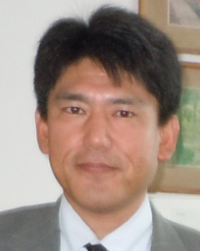SICE Annual Conference 2014, September 9 - 12, 2014 at Hokkaido University, Sapporo, Japan
Tutorials & Workshops
Tutorials (The afternoon of Tuesday, September 9, 2014)
The SICE annual conference 2014 offers two tutorial lectures on the afternoon of Tuesday, September 9, 2014.
| Registration fee | |
|---|---|
| For registrant of the SICE 2014 | JPY 1,000 |
| For non-registrant of the SICE 2014 | JPY 2,000 |
Tutorial 1
(This tutorial lecture is recommended by Technical Committee on Control Theory, Control Division, SICE.)| Title | Data-Driven Controller Tuning: Basics and New Developments | ||
| Organizer | Osamu Kaneko (Kanazawa University) | ||
| Schedule | 14:00 - 17:30 | ||
| Contents & Speakers |
1. Data-Driven Controller Tuning - The Basics of Fictitious Reference Iterative Tuning (FRIT) - Osamu Kaneko (Kanazawa University) |
||
|
2. Fictitious Reference Iterative Tuning Method for Disturbance Attenuation Shiro Masuda (Tokyo Metropolitan University) |
|||
|
3. Nonlinear Compensation and Optimization Methods for Data-Driven Control Yuji Wakasa (Yamaguchi University) |
|||
|
4. Simultaneous Attainment of Model and Controller - Potential Applicability for Analysis of the Interaction between Modeling and Control - Osamu Kaneko (Kanazawa University) |
|||
| Chair | Toshio Eisaka (Kitami Institute of Technology) | ||
Tutorial 2
| Title | Advanced Network Informatics for Complex System Integration by Control Theory and Signal Processing | ||
| Organizer | Jian-Qin Liu (National Institute of Information and Communications Technology) | ||
| Schedule | 14:00 - 17:30 | ||
| Contents |
1. Preliminaries 1.1 Basic Knowledge of System-of-Systems 1.2 A Brief Introduction to Biological Networks 1.3 Information-theory-based Representation of Networks 2. Networked Control Systems 2.1 Models of Networked Control Systems 2.2 Network Architecture 2.3 Performance Analysis 3. Networked Filtering 3.1 Structural Design of Filters 3.2 The Factors of the Channels for Networked Filters 3.3 Application of Networked Filters for Conceptual Design of the Internet-of-Things 4. Applications of Network Informatics 4.1 System-of-Systems for System Integration 4.2 Robust Analysis of Complex Networks 4.3 Network Informatics for Complex Biological Systems |
||
| Speakers | Jian-Qin Liu (National Institute of Information and Communications Technology) | ||
| Katunori Shimohara (Doshisha University) | |||
| Chair | Daisuke Tsubakino (Hokkaido University) | ||
Tutorial Lectures Descriptions
Tutorial 1:Data-Driven Controller Tuning: Basics and New Developments
Tutorial 2:
Advanced Network Informatics for Complex System Integration by Control Theory and Signal Processing
| Abstract: In the era of ubiquitous communications, control theory and signal processing technology historically accelerated by industrial automation are now summoned by the state-of-the-art of communication engineering while the new applications such as brain science and bioinformatics are emerging. This tutorial is arranged to focusing on the network informatics, which is presented on the following key-factors: Networked Control Systems in Control Theory, Networked Filtering in Signal Processing, Robust Analysis of Complex Networks and Network Informatics for Complex Biological Systems. | |
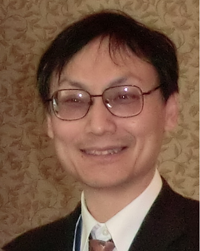
|
Speaker: Jian-Qin Liu (National Institute of Information and Communications Technology) Short Biography: Jian-Qin Liu received the Ph.D. degree in control science and engineering from Central South University, Changsha, China, in 1997 and the Ph.D. degree in informatics from Kyoto University, Kyoto, Japan, in 2006. Currently he is a Senior Researcher at Center for Information and Neural Networks, National Institute of Information and Communications Technology, Kobe, Japan. His current research interests include system-of-systems science and its application in the design of ICT systems for signal processing and communication networks. He received the Chen Xinmin Award from Central South University in 1998 and the Research Award from Advanced Telecommunication Research Institute International in 2005. He is a member of IEEE and IEICE. |
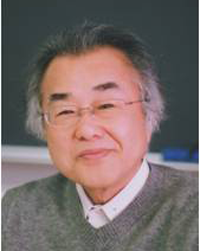
|
Speaker: Katsunori Shimohara (Doshisha University) Short Biography: Katsunori Shimohara received the B.E. and M.E. degrees in Computer Science and Communication Engineering and the Doctor of Engineering degree from Kyushu University, Fukuoka, Japan, in 1976, 1978 and 2000, respectively. He was Director of the Network Informatics Laboratories and the Human Information Science Laboratories, Advanced Telecommunications Research Institute (ATR) International, Kyoto, Japan. He is currently a Professor at the Department of Information Systems Design, Faculty of Science and Engineering, ant the Graduate School of Science and Engineering, Doshisha University, Kyoto, Japan. He is also Director of the Research Center for Relationality-Oriented Systems Design, Doshisha University. His research interests include human communication mechanisms, evolutionary systems, human-system interactions, genome informatics and socio-informatics. |
Workshop (Wednesday, September 10, 2014)
A workshop on the late afternoon (16:30-18:00) of Wednesday, September 10, 2014.
Workshop
| Title |
JEMIMA Sponsored Forum - Challenges to the Innovation Enabling Smarter Manufacturing!! - |
||
| Organizer | Japan Electric Measuring Instruments Manufacturers’ Association (JEMIMA) | ||
| Abstract |
"Sustainable Growth" while "Protecting Global Environments" is an urgent and the most important subject in Measurement, Control and Automation Industry. The Japan Electric Measuring Instruments Manufacturers' Association (JEMIMA) is hardly challenging such dilemmas with innovative Measurement, Control and Automation IT Technologies for coming Internet of Things (IoT) Era. In this Forum, JEMIMA would introduce our challenges for realizing the future "Smarter Manufacturing Society" |
||
| Schedule | The late afternoon (16:30-18:00) of Wednesday, September 10 | ||
| Program & Speakers |
Program 1 (16:30-17:00) "Measurement and Control, lead to the future earth" Mr. Seiji Onoki (Vice Chairman, JEMIMA / Chairman, Azbil Corporation) |
||
|
Program 2 (17:00-17:30) "Revolutionary Technology toward Personalized Genomic Medicines" Professor, Masateru Taniguchi (Osaka University) |
|||
|
Program 3 (17:30-18:00) "Digitalisation in Process Automation" - 3.1 "Innovation Spiral in Automation" Mr. Hisashi Sasajima (Chairman, IEC TC65 Japanese National Committee / Senior Advisor, Azbil Corporation) - 3.2 "Industrie 4.0 - General Introduction and Impact to the Future Automation - " Mr. Hisanori Hayashi (Vice Secretary, IEC TC65 Japanese National Committee / Technical Coordinator, Yokogawa Electric Corporation) |
|||
| MC |
Hisashi Sasajima (Azbil Corporation) Koichiro Matsuda (Horiba Ltd.) |
||
Workshop Descriptions
Contact
Potential tutorial/workshop organizers can contact the Tutorial/Workshops Co-chair,
Kawamura, Takeshi (Kitami Inst. Tech., Japan) (Email: sice2014-pc@sice.or.jp), prior to submitting their proposals.
